The 28th
LaureateMusic
Gidon Kremer
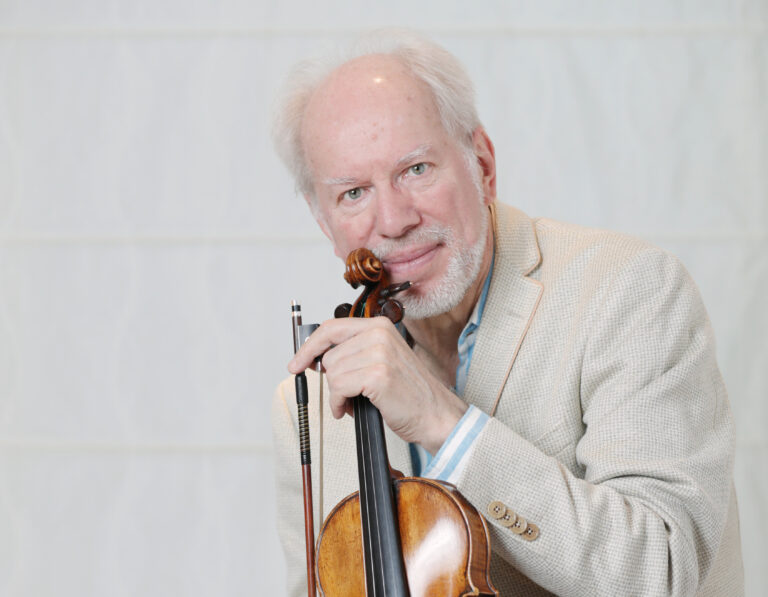
When violinist Gidon Kremer was born,his country,Latvia,was still part of the Soviet Union. His grandfather and parents were professional violinists,so he grew up surrounded by music. He soon came to prominence,winning at the age of 16,a music competition in Latvia,then First Prize at both the 1969 Paganini Competition and the 1970 International Tchaikovsky Competition. That he was talented was apparent and in 1976 he was chosen by Herbert von Karajan to perform Brahms’ violin concerto in Berlin. He has worked with the leading conductors of the day including Nikolaus Harnoncourt, Leonard Bernstein and Seiji Ozawa and has released over 120 recordings. He has a wide ranging repertoire that includes the classic as well as the contemporary – performing and promoting music by composers from the former Soviet Union such as Alfred Schnittke and also Argentine tango music by Astor Piazzolla. His passion for music is greater than just as a performer – he helped to create the Lockenhaus Chamber Music Festival to give young musicians from around the world the chance to play together and in 1997 founded the Kremerata Baltica,a chamber music orchestra for young musicians from the Baltic States. He has dual Latvian and German nationality.
Biography
When violinist Gidon Kremer was born in Riga,Latvia,his country was still part of the Soviet Union. His grandfather and parents were professional violinists and so,from the age of four onwards,he received a rich musical education. He recalls,“My fate to some degree was decided before I was born,but still,fate is such a thing that you have to master it.”
At the age of 16,he won a musical competition in Latvia. Two years later,he went to study violin under the tutelage of David Oistrakh at the Moscow Tchaikovsky Conservatory. He soon made a mark,winning the first prize at both the Paganini Competition in 1969 and the International Tchaikovsky Competition in 1970.
In 1976,he was chosen by Herbert von Karajan to perform Brahms’ violin concerto in Berlin and the next year,he performed in America and established himself as one of the top international violinists.
In the late 1970s,despite the political situation,he was given exceptional permission to live overseas for a couple of years and when that limited period of time was over,instead of returning to the Soviet Union,he chose to stay in Germany to continue to perform in the west. Consequently,even today he has both Latvian and German nationality.
Over his professional career,he has played with nearly 500 conductors,including Herbert von Karajan,Leonard Bernstein,Seiji Ozawa,Simon Rattle and most importantly,the Austrian conductor,Nikolaus Harnoncourt who particularly influenced Kremer in his interpretations of classical music. He has also released over 120 recordings and continues to perform internationally.
He has a wide ranging repertoire that includes the classics but also the works of contemporary composers from the former Soviet Union such as Alfred Schnittke,Arvo Pärt,and Sofia Gubaidulina. He has championed their compositions as well as those of other leading modern composers such Astor Piazzolla,the composer and player of Argentine tango music,introducing their work to a wider audience. “Music is a very young form of art,the history of music is only hundreds of years and to me,old music and new music are just the same. It was quite natural for me to continue relationships with my old friends which were established in the past.”
He has also tried to help young musicians from around the world,organizing the Lockenhaus Chamber Music Festival and creating the Kremerata Baltica,a chamber music orchestra for young musicians of the Baltic States. This orchestra was selected as the recipient of the Grant for Young Artists of the Praemium Imperiale in 2009. “I’d like to say to young musicians – Be open,open your eyes,open your ears,the world is so rich to give you impressions,in nature,in arts,in literature,don’t restrict yourself to be only a slave of your instrument.”
Since his first visit to Japan in 1977,he has performed many times in many parts of the country. Next year,he is planning to take part in various events to celebrate the 20th anniversary of the founding of the Kremerata Baltica as well as his 70th birthday.
Chronology
Recorded Violin Concerto composed by Brahms
-
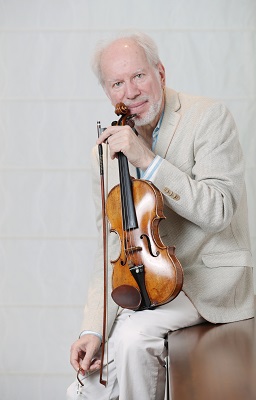
In Sendai
-
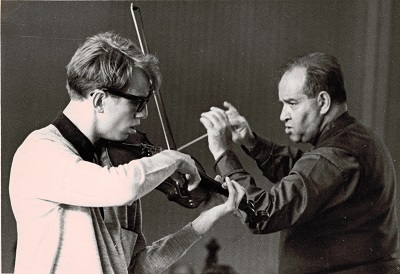
With David Oistrakh
-
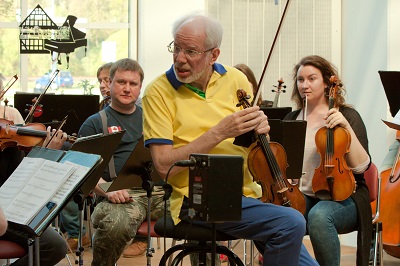
Kremerata Baltica
-
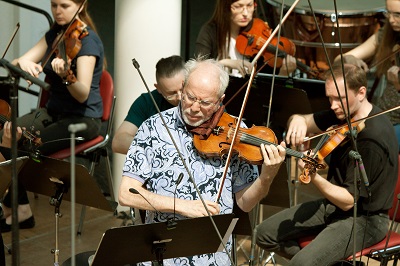
Kremerata Baltica
-
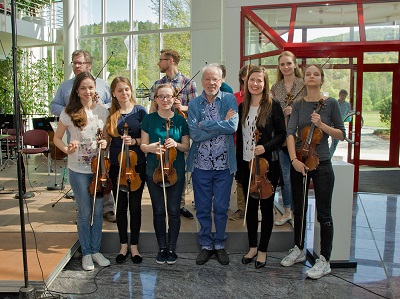
Kremerata Baltica
-
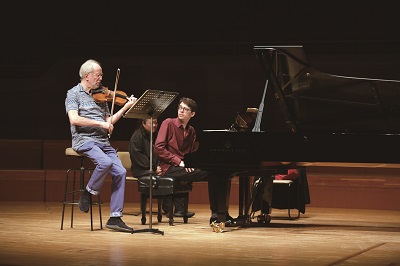
With Lucas Debargue

